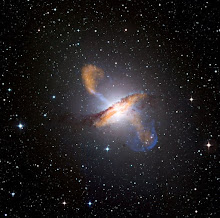If you look at earth from space, you see a dot. That's here. That's home. That's us. On it everyone you love, everyone you know, everyone you ever heard of, every human being who ever was, lived out their lives. The aggregate of our joy and suffering, thousands of confident religions, ideologies, and economic doctrines, every hunter and forager, every hero and coward, every creator and destroyer of civilization, every king and peasant, every young couple in love, every mother and father, hopeful child, inventor and explorer, every teacher of morals, every corrupt politician, every "superstar," every "supreme leader," every saint and sinner in the history of our species lived there--on a mote of dust. The Earth is a very small stage in a vast cosmic arena. Think of the rivers of blood spilled by all those generals and emperors so that, in glory and triumph, they could become the momentary masters of a fraction of a dot. Think of the endless cruelties visited by the inhabitants of one corner of the dot on the scarcely distinguishable inhabitants of some other corner, how frequent their misunderstandings, how eager they are to kill one another, how fervent their hatreds. Our posturings, our imagined self-importance, the delusion that we have some privileged position in the Universe, are challenged by this point of pale light. Our planet is a lonely speck in the great enveloping cosmic dark. In our obscurity, in all this vastness, there is no hint that help will come from elsewhere to save us from ourselves. It's up to us. It has been said that astronomy is a humbling and character-building experience. There is perhaps no better demonstration of the folly of human conceits than this distant image of our tiny world. To me, it underscores our responsibility to deal more kindly with one another, and to preserve and cherish the pale blue dot, the only home we've ever known. -- Carl Sagan, Pale Blue Dot, 1994I can never say anything better than that.
The Alder Grove
"In my sleep thought that I was standing in an alder grove of the straightest and fairest trees which the heart of man could think of or imagine."
Messenger of the Universe
Posted by
Leanne
at
5:39 pm
So...recently I had VIP tickets to see Neil deGrasse Tyson at the Sony Center in Toronto. And it was awesome.
He gave us a choice of topics for current events and the audience chose gravitational waves. He had this gorgeous video of exactly what happened when the black holes collided. "Those two black holes up there? Represent...two black holes". He went on to go over the mass of them and what happened when they collided, which I blogged about quite a bit in a previous post. But it sounds awesome when it comes in NDT's voice. Then when they showed the collision and the formation of the waves, he shouted, "See that! That's what formed!" as he pointed at them while running with them and off the stage.
He went on to show us a rather life-altering picture of Pluto (that which can never been unseen), and then talked a bit about evolution. Did you know that we are more closely related to mushrooms than either we or they are related to green plants? Yeah, me neither actually. :) And he talked about the importance of science being such a large part of a country's consciousness that it even appears on it's money. We got some props for replacing kids playing hockey with the Canadarm and an astronaut. He says that's Chris Hadfield...because Chris Hadfield told him so.
What is really going to stay with me though, more than anything is the end. I am always struck with "the bug" whenever I hear someone in their field who is wonderful in presenting science to the public in a clear and concise manner while still infecting you with the passion that they feel for it. The closing of the night...the auditorium went incredibly silent and an amazing picture of Saturn filled the screen. He talked about how we truly only discovered the Earth, by leaving it. And as the picture shifted from Saturn to the small speck that it our planet - Neil deGrasse Tyson read a passage from The Book of Carl. As he read the words, in that resonant voice, that seems as big as the universe itself, the picture came closer and closer to earth and showed Earth's moon in comparison before going back out to the original, as he read:
Subscribe to:
Post Comments (Atom)
The Path Less Taken...
About Me

- Leanne
- 40+ lefty Canadian socialist, tree-hugging Pagan/Atheist, amateur photographer, voracious reader and science nerd
About this blog
Blog Archive
Followers
Labels
- admissions (1)
- atheism (1)
- Bill Nye (1)
- Brian Greene (5)
- Coursera (1)
- Einstein (1)
- geek crush (1)
- introductions (1)
- Lawrence Krauss (6)
- Neil deGrasse Tyson (3)
- NYC (1)
- Reason Rally 2016 (2)
- Relativity (1)
- Richard Dawkins (2)
- Salt and Fire (1)
- science (1)
- Toronto (2)
- Werner Herzog (1)
- World Science Festival (2)
- World Science U (2)

0 comments:
Post a Comment